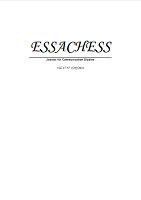Decolonial Affordances of a Digital Communal Heritage Platform: a Case Study of the Reciprocal Research Network
Decolonial Affordances of a Digital Communal Heritage Platform: a Case Study of the Reciprocal Research Network
Author(s): Jason MaurerSubject(s): Museology & Heritage Studies, Media studies, Social Theory, Sociology of Culture
Published by: ESSACHESS
Keywords: actor-network theory; decolonial affordances; cultural heritage; indigenous peoples; Reciprocal Research Network;
Summary/Abstract: Museums are turning to digital platforms in engaging with decolonial work. The Reciprocal Research Network, co-designed with First Nation communities in Canada, is intended as a platform to involve indigenous communities in heritage work. Using actor-network theory, nine interviews with users, developers and steering group members helped to identify specific enactments of decolonial aspirations with the platform pages and data as actants in the process. Affordances relating to breaking technological and cultural barriers and plurality of interactions can be observed from multiple entryways and engagement possibilities with indigenous heritage objects from 29 different museums. While communities used heritage to revive culture, the museums often failed at relationship building and isolated and marginalized First Nation activities.
Journal: ESSACHESS - Journal for Communication Studies
- Issue Year: 15/2022
- Issue No: 29 (1)
- Page Range: 59-81
- Page Count: 24
- Language: English

